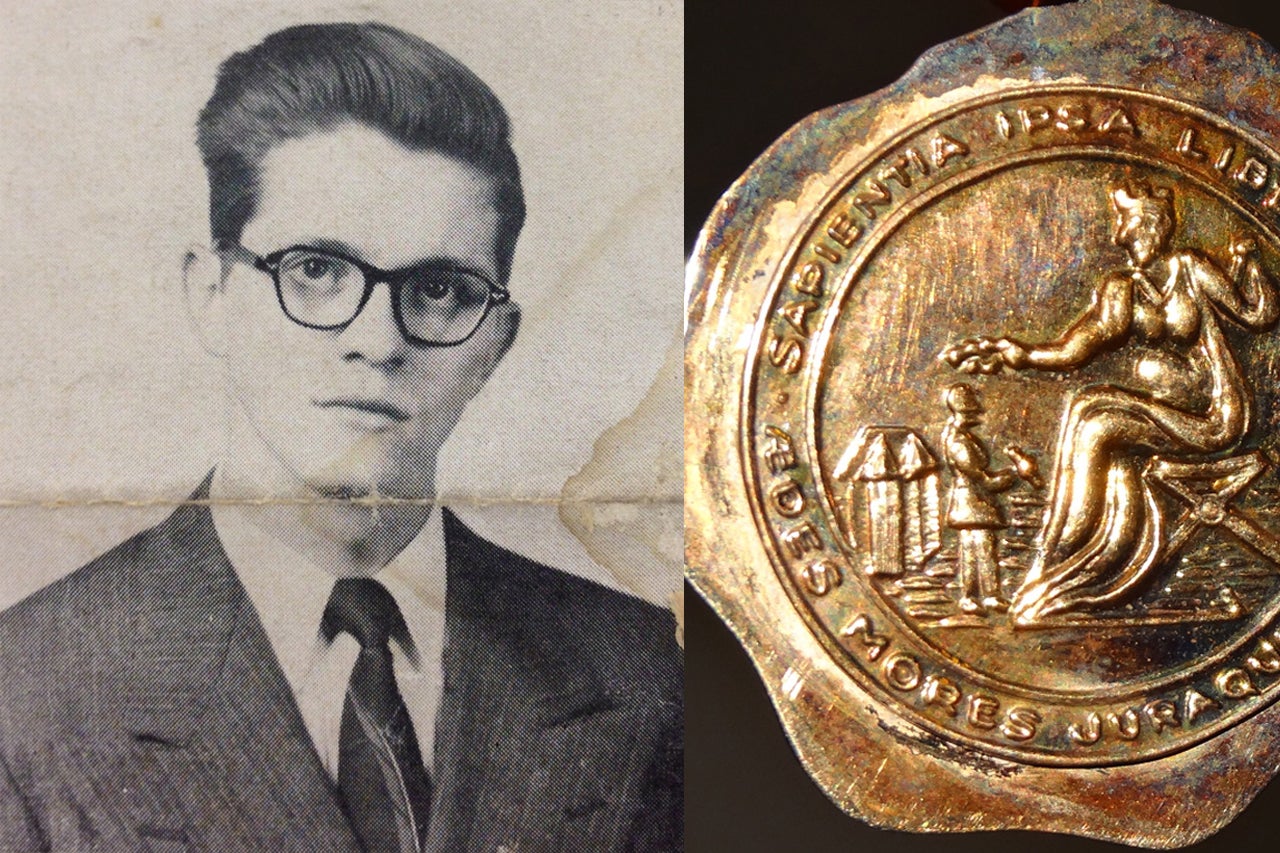In 1951, four years after the College of Charleston became a private institution in an effort to avoid desegregation, English major Francis “Frank” Sturcken delivered a speech advocating the College rethink its exclusion of students of color.
“I can’t say exactly when I saw the light, nor do I know its source. Education? The influence of friends? Morals?” Sturcken pondered in his speech. “The important thing is that I did, and the emotional uplift that I felt when I no longer had to assume an artificial superiority over the negro race, was a startling and wonderful experience.”
The oratorical delivery, titled “The Liquid South,” made Sturcken, who graduated that same year, the first three-time winner of the College’s Robert Worth Bingham Oratorical Contest. He had won the prior two years for other speeches. Sturcken, who died in 2006, went on to earn a doctorate in speech, theater and television and teach at the University of California, Los Angeles and Southwest Minnesota State University.
Moved by Sturcken’s passionate and brave plea for equality, current Honors College student Tanner Crunelle has galvanized a movement to bring back an oratorical competition at CofC aimed at empowering students to make a difference on campus.
A project in an Honors College seminar on the people’s history of Charleston in the fall of 2017 led Crunelle, who is an English major, to Sturcken’s speech among papers at the Avery Research Center for African American History and Culture at the College of Charleston. Sturcken donated a typed manuscript of his 1951 speech, along with other personal papers, to the Avery Research Center in 2001. Crunelle’s discovery of the speech dovetailed with his involvement with issues of social justice on campus following public accounts of racial stereotyping at universities across the nation.
“Many of my black peers had really wonderful ideas about how to bring about progress on campus, but there wasn’t a forum to do so,” says Crunelle. “We often tell people that it’s important to be civically engaged, but we don’t always provide the networks in order to do that.”
Thinking of Sturcken and the tradition of the Bingham Oratorical Contest, Crunelle began pushing to revive the competition with the support of many academic departments, faculty and fellow students. The last Bingham competition was held in 1969 when former CofC President Glenn F. McConnell ’69 won for a speech about a Soviet Union foreign policy to intervene in other Communist countries to uphold socialism. An annual tradition dating to 1907, the speech competition identified the best student orator decided by a panel of College faculty.
Although Sturcken’s speech was a bold move against segregation, Crunelle says “a more sustained effort may have made a greater impact.” That’s why the new competition offers the winner support from a network of campus offices to help see his or her idea through to a tangible solution in addition to a $500 cash prize.
The inaugural Sturcken Memorial Oratorical includes two rounds. The first round includes a brief written submission outlining a problem on campus and potential solution. Those submissions are due on Sept. 23, 2018. Student orators will be invited to expand their proposals in a five to nine minute verbal presentation on Oct. 13 in room 101 of the Rita Liddy Hollings Science Center. The presentation will be open to the public. A panel consisting of two students, two faculty members, a campus administrator, and a community leader will determine the ranking of the speeches.
“It’s about giving students a platform to present intention, evidence-informed argumentation,” says Crunelle, “and offers passionate students an opportunity to tackle a singular project with a specific goal.”
Featured image: Francis Sturcken in a photograph from 1951 and the Bingham medal, the award given to winners of the Robert Worth Bingham Oratorical Contest.





